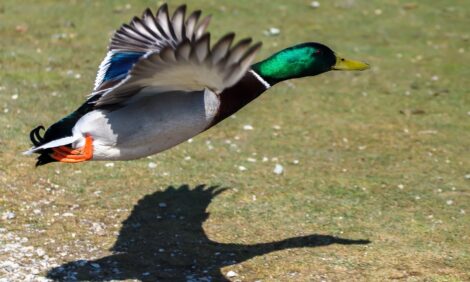



Monitoring Helps Brasil Foods Steer IB Vaccination Programme
Careful, high–tech monitoring has demonstrated the volatility of infectious bronchitis (IB) in the field and enabled a Brazilian producer to provide the most effective vaccination programs to contain the disease, according to Mário Sérgio Assayag Jr. in the Journal of Poultry Respiratory Protection from Merck Animal Health, US.
Mário Sérgio Assayag Jr., MV, DSc, the veterinarian
in charge of animal health for Brasil Foods,
Curitiba, explained that IB has been a problem
for both broilers and broiler breeders and that
the challenges are both seasonal and periodic.
In broilers, IB often leads to increased use of
medication in the field and higher condemnations
due to air-sacculitis and colibacillosis, the veterinarian
reported.
In breeders, IB results in poor hatching, egg
production and mortality. An added complication
is frequent co-infection with avian metapneumovirus,
which requires its own vaccination,
he added.
In one field example cited by Dr Assayag, broiler flocks
affected with IB had watery faeces, extremely wet
litter and were depressed and rough-feathered;
they also were severely dehydrated, which was
indicated by dark muscles, and had kidney lesions,
mild airsacculitis and contact dermatitis. Mortality
was elevated by three per cent.
A field case involving breeders was characterized
by watery feces, severe dehydration, kidney lesions,
air-sacculitis, contact dermatitis and a 0.5 per cent increase
in mortality, he said.
Economic Impact
The economic impact of IB has been significant:
Over US$3 million annually for broilers and nearly
US$4 million for breeders, Dr Assayag continued.
The company, which has its own facilities where
IB viruses can be typed using polymerase chain
reaction (PCR) and genetic sequencing, also
conducts challenge trials in its lab as well as field
trials. It has found that 58 per cent of IB viruses affecting
its flocks are of the Massachusetts serotype and
42 per cent are IB variants, he said.
Brasil Foods uses testing results to adapt its vaccine
programmes to the IB challenge as needed. In broilers,
it has administered IB H120 or Ma5, both of the
Massachusetts IB serotypes.
“The protection with
an IB Ma5 vaccine is much higher, and it’s a better
vaccine to use because you don’t have to vaccinate
as many times,” Dr Assayag said.
In breeders, the vaccination programme used also
varies depending on the IB challenge and is tailored
to meet the needs of these longer-lived birds that
need protection longer than broilers. The company
may use a live IB Ma5, H120 or both vaccines to
start, followed by killed IB vaccines such as Mass
or the variant D274, and then revaccinates during
production with two killed vaccines.
“We use those two inactivated vaccines with good
results when there is a very high IB challenge,”
Dr Assayag said.
The concept of Protectotype — using more than
one IB vaccine from serotypes that have cross-protective
ability — “is a very important way to
look at infectious bronchitis if we want results in
the field,” he added.
Further Reading
|
| - | Find out more information on the diseases mentioned in this article by clicking here. |
June 2012









